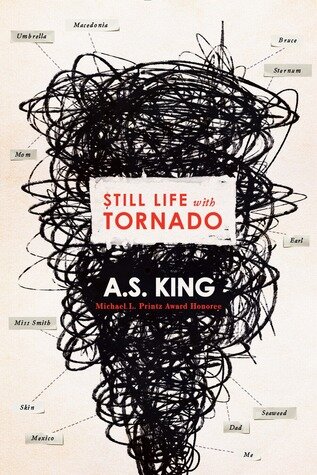A Tale for the Time Being
By Ruth Ozeki
Publication Year: 2013
Type: Fiction
Genre: magical realism, historical fiction
Read on 2019-07-11
View additional specs on this book in Muhan’s 2019 Reading Survey ➞
★★★★★
This is a book about time and history. Personal histories and national histories. Writing history and reading history. Experiencing history and experiencing time. Ultimately, the book makes a solid case against fixity in the narratization of time (whether personal or historical), and for the tender ephemerality of experiencing life here and now.
Reading this book made me think about how, so often, individual disciplines of academia or other modes of study (like the writing of textbooks) can only limit itself to a dogmatic and myopic strain of understanding something. That is like trying to do your hair by plucking one strand of hair from your head at random and combing it over and over. By contrast, this book, and its treatment of history, sociology, literature, ecology, temporality, ethnography is like brushing through and untangling your entire head of hair then braiding it into a beautifully intricate braid that you can step back and admire as a whole. This book weaves between motifs just like that, wending over and under until, before you know it, it’s folded in so many threads of the story/themes that each one is in a constant state of paying off mind-blowing-brilliantly in probably more ways than you are even capable of fathoming at once.
This is achieved first of all by the form of the book itself, alternating between a family history-turned-“diary entries” written by 16-year-old Nao (Naoko Yasutani) in 2000s Tokyo and a traditional novel narration of the woman who finds and slowly reads her diary, Ruth, on an island off the coast of British Columbia in the present. As Ruth follows on her personal rule to read only as fast as Nao wrote, we uncover both timelines separately but in exact parallel, until both timelines appear to “meet” in a LUSHLY literary magical realist way. It is my favourite sort of magical realism, because the seemingly magical elements can also by diegetically explained by story-compliant facts already revealed to the reader, i.e. the magic is simultaneously magic and not actual magic at all. On a meta level, the author Ruth Ozeki equally inserts her own biography into the character Ruth (who is also a novelist, Japanese American, named Ruth, from NYC but lives in B.C. on an island, etc.), as yet another layer of narrative writer-y trickery.
Unfortunately, I listened to the audiobook, which, although wonderfully narrated by Ruth Ozeki herself with very thoughtful attention to the different accents and languages in the book, did not preserve the footnotes I have since learned of. I will absolutely re-read as a book for those.
This book would have already been perfect, but what pushes it over the edge of sublime is the fact that it touches upon so many of my personal experiences, growing up in B.C. where Ruth lives in old(er) age but also living and enduring/surviving a trans-Pacific, bi-coastal existence like Nao. The story of Nao’s family’s return to Japan after she grew up American in Sunnyvale, California is not totally unlike the story of my own family’s return to China after I grew up and my siblings were born in Vancouver, B.C. (although I was off to college in Montreal, also like Nao, by the time my family moved back). While Nao isn’t tormented internally as much as she is externally by her identity the way that I am, I still enjoyed this refreshing and thoroughly contemporary take on diasporic existence.
I found equally personal the exploration of difficult national histories, and navigating a sense of personal conscience with a sense of duty or moral obligation to a group (family, job, nation). Just as Nao and her father appear to grapple deeply (even if to ultimately ambiguous ends) with horrible atrocities of war and terrorism on and by Japan and the U.S., so too have I grappled with these as a dual - well not citizen but, child I guess, of China and Canada. I’ve also, for most of my life, been trying to understand Chinese-Japanese relations, to telegraph nationalist antagonisms onto intergenerational traumas onto my personal life experiences. My family is both from Nanjing and deeply racist against Japanese, and I am both born in Nanjing and cut of any umbilical cord to a Chinese national consciousness. This book addresses the Japanese-American dynamics directly and touches upon difficult Japanese histories, among them the Sino-Japanese war, briefly. It also skims ever so lightly across the surface of Canadian-American relations. I connected some of the dots myself, and was able to work through some of my own ongoing conscience-raising questions. This, I suppose, is yet another gloriously, richly, essentially diasporic aspect of this book.
The nuts-and-bolts writing is also absolutely incredible. I will leave you with a few nuggets that I managed to e-scribble while listening to the audiobook + 1 full quote I pasted in for context:
Writing as an immortality
Warm biological noises of the night
War and Japanese soldier, history - imagined/performative patriotism/history, personal “conscience”
“Jiko: "Surfer, wave, same thing."
"That's just stupid, " I said. " A surfer's a person. A wave is a wave. How can they be the same?"
Jiko looked out across the ocean to where the water met the sky. "A wave is born from deep conditions of the ocean. A person is born from deep conditions of the world. A person pokes up from the world and rolls along like a wave, until it is time to sink down again. Up, down. Person, wave.”
Sado, maso, same thing
Not knowing keeps the world open, keeps all the possibilities alive
See me review this book in this video!
See me gush EVEN MORE about this book in this video!





